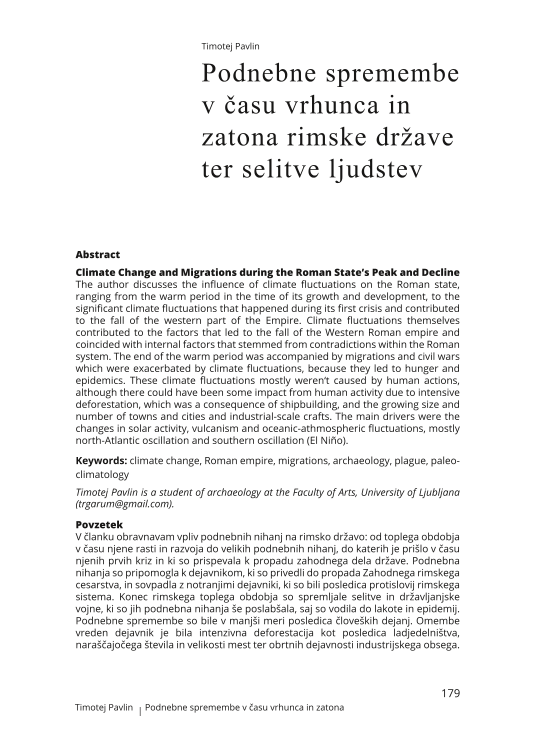The author discusses the influence of climate fluctuations on the Roman state, ranging from the warm period in the time of its growth and development, to the significant climate fluctuations that happened during its first crisis and contributed to the fall of the western part of the Empire. Climate fluctuations themselves contributed to the factors that led to the fall of the Western Roman empire and coincided with internal factors that stemmed from contradictions within the Roman system. The end of the warm period was accompanied by migrations and civil wars which were exacerbated by climate fluctuations, because they led to hunger and epidemics. These climate fluctuations mostly weren‘t caused by human actions, although there could have been some impact from human activity due to intensive deforestation, which was a consequence of shipbuilding, and the growing size and number of towns and cities and industrial-scale crafts. The main drivers were the changes in solar activity, vulcanism and oceanic-athmospheric fluctuations, mostly north-Atlantic oscillation and southern oscillation (El Ni).




